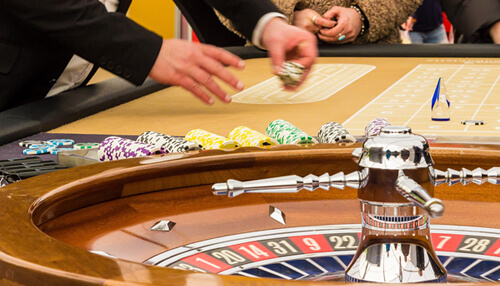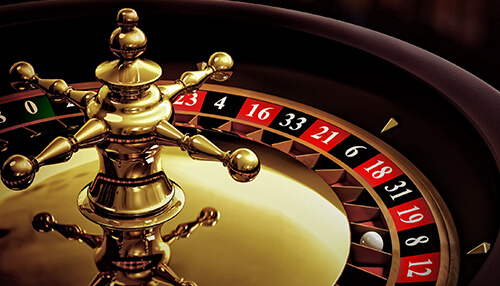The oldest casino games have not only stood the test of time. But they have also managed to nestle in the hearts of players, young and old, and thus strengthen their position in the casino industry. It has been a favorite game for centuries. Even in Roman antiquity, chariot wheels were turned to reveal symbols/numbers that brought winnings. The form of roulette that has made its way into casinos (and the hearts of players worldwide) comes from France.
Many classic , like cards and baccarat, have journeyed to gambling websites over the years. But online roulette has become arguably one of the most prevalent. With a game that has been enjoyed for centuries now available on the web, many people are rediscovering its pleasure.
But how has technology impacted how we play the game compared to previous centuries? Here, we will look at how innovation has transformed the game of roulette in the 21st century.
The History Of Roulette
Even though enthusiasts appreciably debate the real roots of roulette, most experts firmly believe that the game was certainly invented in France throughout the 1600s. It is usually believed to have been devised by the incredible scientist and inventor Blaise Pascal, who made big discoveries in mathematics and physics. Interestingly, many speculate that his bold pursuit of building a perpetual motion device, which aimed to defy the laws of physics, served as a primary inspiration behind the introduction of roulette.
This fascinating concept shows that Pascal’s bold endeavors led him to design a recreation that mirrored the unpredictable factors of his scientific experiments, incorporating factors of threat and uncertainty. Thus, it is possible to surmise that Pascal’s modern mindset and his unwavering dedication to scientific exploration played a pivotal function at the start of this iconic casino sport.
Pascal’s invention of the roulette table, a sport that concerned spinning a wheel with numbered booths and setting bets based on the final results, proved to be pretty enduring. Even as time extended, stretching from the 17th to the 18th centuries, human beings endured to revel in and play this famous recreation that he had brought. Its reputation and sturdiness are a testament to Pascal’s inventive introduction.
However, diverse adjustments were made to the wheel over a long time, along with King Charles III inserting a 0. This change, which became universally identified as the contemporary roulette wheel of length, revolutionized the game. With the passage of time, infinite individuals from numerous backgrounds eagerly engaged in playing roulette, contributing to its enduring popularity over the course of the centuries.
Remarkably, this traditional recreation underwent simply full-size alterations, one in Europe and some others when it arrived on American soil. These modifications enhanced the gameplay and multiplied the leisure of the game for even more gamers, making roulette a cherished interest throughout the Atlantic and throughout the globe today.
How the Digital Era Has Affected Roulette
With the rapid popularization of the Internet and the increasing possibilities of smartphone and tablet devices, the classic wheel of roulette was easily adapted to successful web casino sites.
Since the debut of the first casino website in 1998, technology has empowered players to play roulette without leaving the luxury of their houses. The 20th century witnessed a surge in Internet funding as many developers realized it would be here to stay.
In the late 1990s, the personal computer was garnering prominence because of the spread of the Internet. Consequently, Internet casinos began to provide access to roulette digitally. The game was created with a programmed random number generator, so you may feel the excitement of the game without compromising the luxury and privacy of your home. The progress of roulette, nevertheless, did not stop with software-based games.
The Emergence of Live Roulette
As desktop computer systems’ competencies progressed within the early twenty-first century, the emphasis on the Internet experience evolved, transferring far from sincerely supplying an app version of the original online casino game. Instead, the advancement of online services and cameras paved the way for a new generation of immersive gaming stories.
This shift converted the business into actual-time online games with digital marketers, introducing players to an international environment in which they could engage with virtual characters and compete with fellow gamers from around the world, all inside the comfort of their own homes. The integration of modern technology and seamless online connectivity made these video games come alive with stunning visuals and reasonable simulations, captivating gamers like never before.
Because of this, live roulette allows the use of the web to not only view actual games but also start betting on live matches wherever you are. In recent times, the web has changed the gambling business by providing more opportunities to individuals in faraway places and those who might not have access to live events in a neighboring casino.
Also, since the digital environment fits the new generation of gamers, it’s another income stream for most big bookies and casinos.
Artificial Intelligence And The Future Of Roulette
As online casinos continue to grow, advancements in AI innovations provide the opportunity for completely new and interactive gameplay.
Gamers may now play their favorite games without leaving the luxury of their homes, thanks to newly created technology. VR casino games, which allow you to connect with peers and discover the casino scene, are quickly becoming the most popular method to participate in live gambling.
Although VR is still in its startup phase, the evolution of the system can significantly increase the possibilities of online roulette and the entire experience that the player enjoys when engaging in their favorite game. Could this ultimately be enough to eliminate the necessity for a conventional brick-and-mortar casino? Only time will tell.
Final Notes
Online roulette, a popular form of digital gambling, is predicted to attain a broader consumer base as more human beings flip to the internet for leisure sports. It remains to be seen whether or not those progressive digital roulette reviews can truly rival the joys of playing at a conventional brick-and-mortar casino. The passage of time will display the effectiveness and enchantment of those new online roulette systems and whether or not they are able to mirror the excitement and social interplay observed in physical playing establishments.



